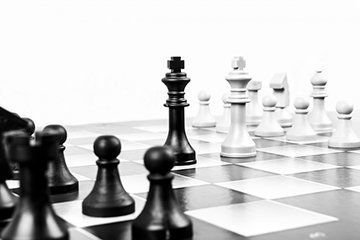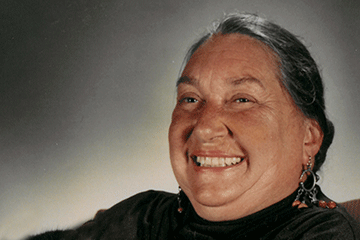Bulletin News

09/12/2023
What do medieval nuns, Afghani refugees, Tibetan Buddhists and documentary filmmakers have in common?
Their stories all involve humanity’s age-old struggle for power.
Starting on Oct. 4, SUNY Cortland will explore that struggle through different lenses during its 2023-24 Rozanne M. Brooks Lecture Series. The series features five planned lectures on the theme of “The Culture of Power.”
The interdisciplinary talks will touch on topics ranging from extremist groups in today’s world to gendered power wielded centuries ago. Speakers will discuss how the drive for supremacy shapes religious movements, impacts the dynamics of filmmaking and pushes people to excel in physical feats.
The discussions all take place on Wednesdays and begin at 4:30 p.m. in Moffett Center, Room 115. Seating will be limited, so attendees are advised to arrive early to secure a seat. A reception to welcome speakers precedes each talk at 4 p.m. in the adjacent Brooks Museum. The events are free and open to the public.
“The series theme this year encompasses so many perspectives on how power can be used for both ill and gain,” said Brooks lecture series organizer and Brooks Museum director Sharon Steadman, a SUNY distinguished professor and chair of SUNY Cortland’s Sociology/Anthropology Department. “Attendees will be treated to excellent presentations on important topics that affect how we live our lives and how we understand the world around us.”
Among the presentations:
Abbess, Judge, Jailor: Authority and Imprisonment in Medieval Normandy — Laura Gathagan, an associate professor in SUNY Cortland’s Department of History, will discuss her research on the Abbey of Holy Trinity, Caen, which was founded in June 1066 by Mathilda of Flanders, duchess of Normandy and queen of England. Gathagan has found among rare 700-year-old documents that the abbesses of Holy Trinity held an important judicial role and the power to imprison offenders of the law. The journey of these manuscripts, and the abbesses who protected them against the vicissitudes of war and political upheaval, form the basis for this presentation. Oct. 4.
The Power of Extremism in Afghanistan — Sameer and K. Harris lived in Afghanistan before and after the departure of the U.S. forces in 2021. They will present their stories of life before the departure and afterwards as extremist politics once again took hold of the country. They also will describe their difficult journey from the country of their birth to their new home in New York state. Nov. 1.
Empowerment Through Sport and Fitness — Empowerment can be defined as the process of becoming stronger and more confident, especially in controlling one’s life and claiming one’s rights. Amanda Tepfer, an assistant professor in SUNY Cortland’s Physical Education Department, will discuss physical activity through the lens of inclusive physical education and sport. According to her, physical activity can engage participants to not only respond to physical challenges but also engage in problem-solving behaviors that contribute to success in everyday life situations. Feb. 21, 2024.
Tibetan Buddhism, China and the Politics of Tension — Allen Carlson, an associate professor in Cornell University’s Government Department who has focused his scholarship on international relations, will discuss Tibet and its relationship with China, particularly regarding the tradition of reincarnation in Tibetan Buddhism and the politics around the selection process of lamas and rinpoches. Carlson will draw special attention to the emerging divide between the Tibetans and Beijing over the lineage of the Dalai Lama. Carlson currently serves as director of Cornell’s China and Asia Pacific Studies program and advisor of its East Asia Program. March 20, 2024.
Framing Truth: Exploring Power Dynamics in Documentary Filmmaking — Samuel Avery, an associate professor in SUNY Cortland’s Communication and Media Studies Department and coordinator of Cortland’s annual Blackbird Film Festival, will address the behind-the-scenes power struggles that occur during the creation of documentary films and nonfiction docu-series. The genre often attempts to present reality in its unfiltered form, allowing viewers a transparent look into the authentic truth of a subject’s life. However, beneath the surface of candid storytelling lies a complex web of power dynamics that significantly influence the production, presentation and interpretation of these narratives. The power imbalance between the individual being documented and the one directing the camera can affect the level of trust, consent and agency given to the subject. Many other complex, ethical issues may affect the delicate balance between storytelling and exploitation. April 10, 2024.

The Brooks Series honors the late Distinguished Teaching Professor of sociology and anthropology emerita at SUNY Cortland, Rozanne M. Brooks, whose donated special collection of ethnographic objects to the Sociology/Anthropology Department established the Brooks Museum in 2001.
The 2023-24 Brooks Lecture Series is co-sponsored by the Cortland College Foundation and Cortland Auxiliary. For more information, contact Steadman at 607-753-2308.
Image by PublicDomainPictures from Pixabay

